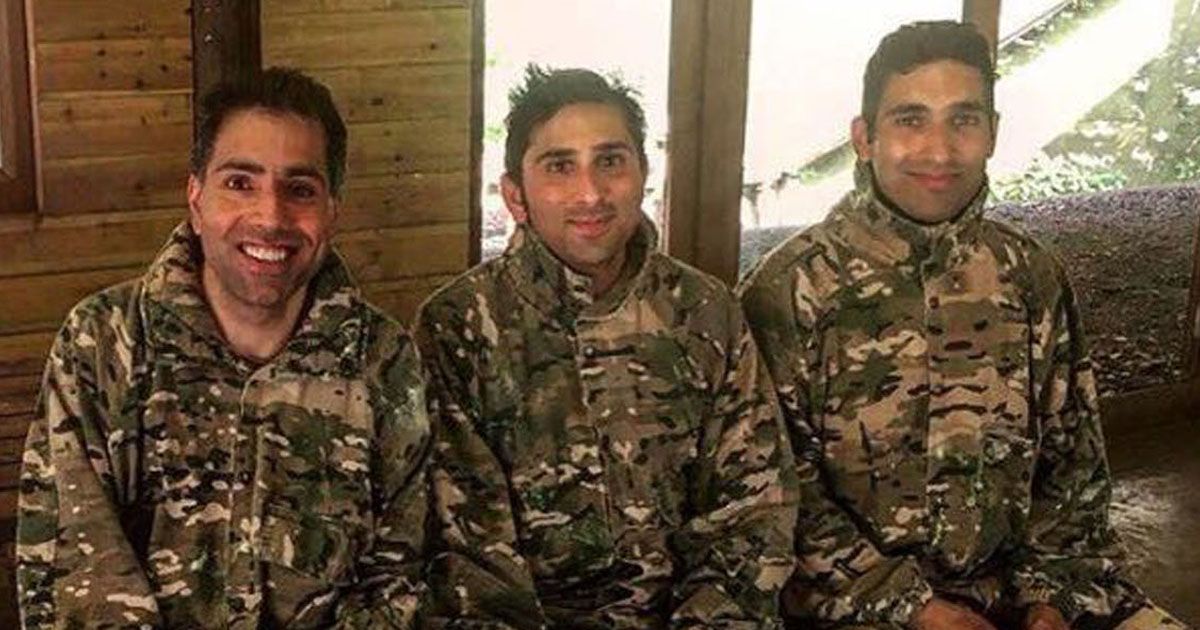The Gogglebox Siddiqui brothers have nothing to apologise for – laughter is the last line of defence against extremism
Prominent British Asians have a cultural history of debunking stereotypes by hyperbolically playing up to them in public spaces

Your support helps us to tell the story
From reproductive rights to climate change to Big Tech, The Independent is on the ground when the story is developing. Whether it's investigating the financials of Elon Musk's pro-Trump PAC or producing our latest documentary, 'The A Word', which shines a light on the American women fighting for reproductive rights, we know how important it is to parse out the facts from the messaging.
At such a critical moment in US history, we need reporters on the ground. Your donation allows us to keep sending journalists to speak to both sides of the story.
The Independent is trusted by Americans across the entire political spectrum. And unlike many other quality news outlets, we choose not to lock Americans out of our reporting and analysis with paywalls. We believe quality journalism should be available to everyone, paid for by those who can afford it.
Your support makes all the difference.Humanity “has unquestionably one really effective weapon – laughter,” once said revered American writer Mark Twain. “Power, money, persuasion, supplication, persecution – these can lift at a colossal humbug – push it a little – weaken it a little, century by century, but only laughter can blow it to rags and atoms at a blast. Against the assault of laughter nothing can stand.”
Twain’s words could not be more apt in the current toxic climate of fear and inter-racial hostility, a climate which extremism simultaneously harbours and feeds off. We find ourselves at a dark, hopeless juncture in humanity’s history; to survive, you’ve either got to laugh or cry.
Indeed, Isis would prefer that you wept. They would prefer that life came to a standstill, that British culture spontaneously combusted. Last November’s Paris attacks at bars, restaurants and concert halls – bastions of cultural exchange and social affairs – is a painfully recent reminder of Isis’s assault on our humanity, our neighbourhood, and on our way of doing things.
Laughter, however, goes against the grain of terror. Yet we seem to want to give Isis the validation they seek. The nation’s favourite Gogglebox stars, the Siddiqui brothers, were reported to anti-terror police this week and had to publicly apologise for making a knowing joke about racial stereotypes on the social network Facebook.
In a picture posted by Raza Siddiqui, the brothers can be seen in camouflage preparing for a day of paintballing. The caption jestingly reads: “Isis training day, look how happy we look!”
In a statement, Gogglebox called the Facebook post “misjudged”. After widespread condemnation, the cheeky trio had to apologise.
But what is it exactly that they are apologising for? For offending Facebook friends stupid (or malicious) enough to interpret their black humour as a serious confession of loyalty to the caliphate? Or was it for ridiculing so dangerous an organisation as Isis and its self-cultivating social media?
Isis propaganda is a million miles away from three metrosexual British Asians posing for the camera with gleaming smiles on their faces, wearing faux military gear which looks like it was picked up at a rainy car boot sale in Skegness. The boys were out to tackle stereotypes and prejudice. The picture forces us to question our assumptions about Muslims and British Asians. That much is to be applauded, not deplored.
The Siddiqui brothers are not alone in their endeavours to educate the rest of the population about what it’s like to be caught between two cultures. Since the premier of the BBC’s first Asian comedy, Goodness Gracious Me, in 1996, prominent British Asians have had a cultural history of debunking stereotypes, usually by hyperbolically playing up to them in public spaces – be it social media, primetime television or Dav Patel’s sensational Hollywood blockbuster, Slumdog Millionaire.
From Zainab Massood’s harrowing performances on EastEnders, notably where she struggles to accept her son’s sexuality, to stand-up comedians such as Omid Djalili and Nina Wadia, British Asians are writing their own narrative and busting a few myths in the process. A look on the BBC reaffirms that the British Asian comedy scene is thriving.
But the threat of terrorism is clamping down on freedom of speech and expression, not least for brown people in Britain.
Raza works selling vegetables at a stall on London’s busy Church Street market: “You could joke with your customers before,” he tells me. “One customer, Barry, used to call me ‘curry face’ and I used to call him a ‘honky colonialist’. We used to laugh. But no one wants to laugh anymore; you’ve got to be careful what you say.”
The politicisation of laughter is troubling. Of course, the right to offend is not absolute. It is a qualified right. It depends heavily on context.
The current tendency, however, is to divorce comedy from context, to silence laughter wherever it may come from, and to condemn the light-hearted and the self-deprecating.
We may have voted to keep Trident, but Britain is on her way to losing her most prized, potent weapon: comedy. How terrible: the death of comedy will mark victory for the terrorists, and a crushing defeat for democracy.
So I leave you with a joke. Last night I went to the toilet. I thought I could hear noises – and then I saw a ghost. But it turned out just to be my mother in her burka.
Join our commenting forum
Join thought-provoking conversations, follow other Independent readers and see their replies
Comments